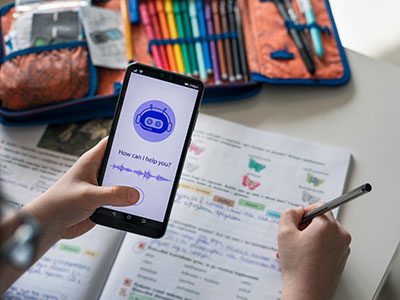Wondering if your child spends too much time on their screen? Most parents would love it if there was a recommended maximum amount of time a child should spend in front of a screen. Unfortunately, it’s not that simple. Not all screen time is equal — different activities impact children in different ways. For example, watching TV or playing video games is very different from video chatting or using digital devices to make art and music.
Because of the different ways children use screens, there is no set number of hours that qualifies as a screen addiction. Instead, you need to look at how the screen is impacting your child’s life. If it interrupts sleep or disrupts social activities — such as going out or playing games with friends — it is more likely to cause harm.
Why is spending time on screens bad?
There are several reasons why spending excessive time on screens is bad for children:
- Spending more time on phones or other screens increases your child’s risk of exposure to cyberbullying and pornographic content.
- Greater time spent on social media often correlates with depression and internalizing problems.
- Excessive screen time often leads to poor sleep, poor self-esteem and poor body image.
- Research has shown that spending more time on screens results in lower attachment to parents.
- Being sedentary and spending a lot of time on screens can lead to obesity.
Are certain children more susceptible to screen addiction?
Children experiencing depression, anxiety or attention deficit hyperactivity disorder (ADHD) are more likely to use screens as a means of avoidance and isolation. Unfortunately, this relationship is bidirectional — children who spend more time on screens are more likely to develop symptoms of depression, leading to a vicious cycle of depression and screen time.
A child’s environment also plays a role in whether or not they will spend excessive time on screens — if kids don’t have avenues to explore extracurricular activities, they are more likely to spend time on screens.
What should I do if I think my child is addicted to their screen?
If you think your child is addicted to their screen, start by figuring out where the harm is coming from:
- What is it about the screen time that is causing issues? What are they viewing? Are they spending a lot of time on certain apps or websites?
- Does your child have a healthy relationship with their phone? Are they putting their phone down before they go to bed or are they up all night talking to friends? Are you setting a good limit on screen time for your child?
Once you figure out what is causing harm, there are several things you can do:
- Have a healthy conversation with your child about spending less time on their screen.
- Set a good example with your screen time. Actively try to spend more time interacting with your children and less time on your screen.
- Check in occasionally on what your child is doing on their phone. Take an active role in supervising online behavior.
- Set limits on what time phones can be turned on in the morning and off at night and stick to those limits. Ideally, screens should be turned off an hour before bedtime.
- Set consequences for negative behavior, such as taking your child’s phone away for a day. Keep it short though — do not take the phone away for extended periods of time — consequences work better when they are short term and kids often struggle and care less if the consequence is losing something for too long.
At what point should a professional be called in?
If setting limits on screen time leads to emotional problems with your child, or if it’s causing increased parent-child problems and you’re not able to set limits on screen usage, it could be time to find outside help. Your child’s pediatrician can help you set up a behavioral plan and, if needed, suggest a mental health professional to rule out any ongoing mental health issues that might be making it harder for your child to put down their screen.
Resources
 https://riseandshine.childrensnational.org/wp-content/uploads/2026/02/olympics-feature.png
300
400
webteam
https://riseandshine.childrensnational.org/wp-content/uploads/2017/11/childrens_riseandshine_logo.jpg
webteam2026-02-05 16:41:512026-02-06 08:51:52What the Winter Olympics can teach our children
https://riseandshine.childrensnational.org/wp-content/uploads/2026/02/olympics-feature.png
300
400
webteam
https://riseandshine.childrensnational.org/wp-content/uploads/2017/11/childrens_riseandshine_logo.jpg
webteam2026-02-05 16:41:512026-02-06 08:51:52What the Winter Olympics can teach our children





















Leave a Comment
Want to join the discussion?Feel free to contribute!